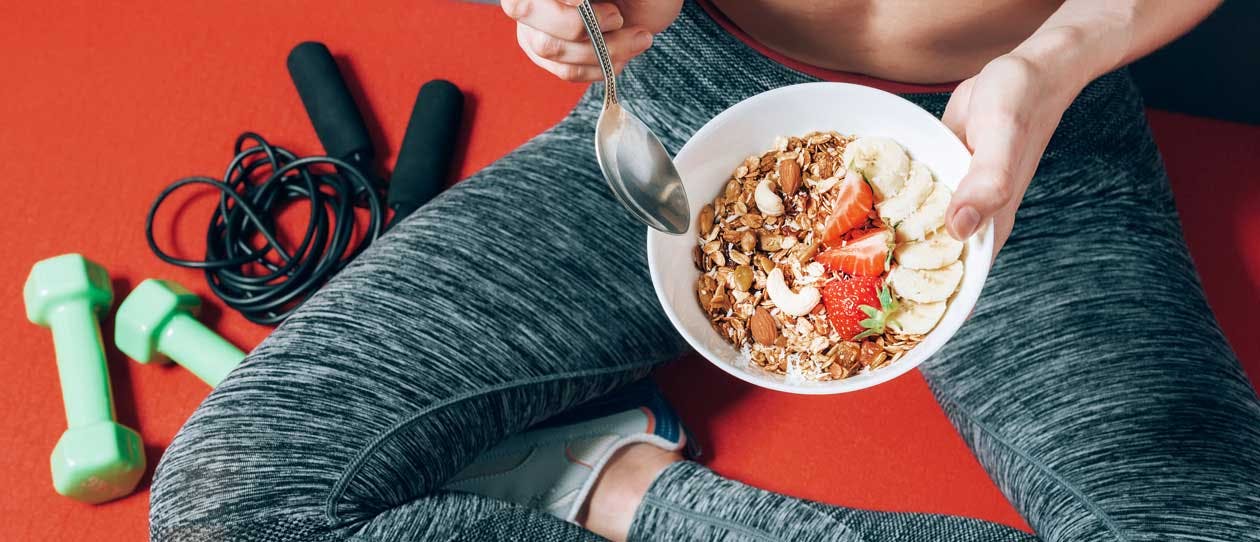Get in the mood to move
What seems clear is that exercise goes hand in hand with better eating habits. And it doesn’t seem to matter what type of exercise you do.
Participants in the study mentioned above chose from a variety of cardiovascular (aerobic) exercise machines, including the treadmill, elliptical trainer, stepper, and/or exercise bike.
They were given no clear instructions on changing their diet, yet the more compliant subjects were with sticking to exercise, the more likely they were to maintain a sensible pattern of eating after exercise; which included a high intake of fruits, vegetables, and low-fat foods, and a reduced intake of fried foods, and soft drinks.
When the intention of improving your health develops,
the thought of both moving more and eating better can be daunting. It’s a double barrier that might be a bridge too far for some.
The researchers even noted that imposing multiple goals often discourages, rather than motivates people to improve their health behaviors within a busy schedule.
However, just starting to move more by itself could be seen as a means to not only better your health, but it might even trigger improvements in your diet without having to focus on it.
Finally, the researchers also warned that exercise in some people could trigger the opposite effect - compensatory behaviours. While they acknowledge that more research is needed, it suggests that some people might allow themselves to eat more palatable but unhealthy foods because they feel better for exercising.


